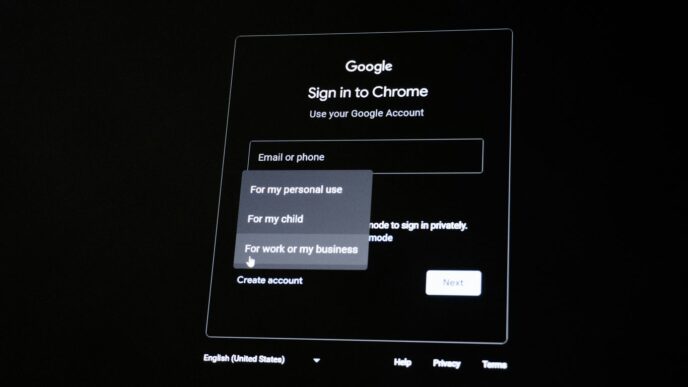We all want to feel like people trust us, right? It’s a nice feeling. But how do you actually know if someone trusts you? It’s not always as simple as just hearing them say it. People can say a lot of things, but their actions often tell a different story. This article is all about figuring out the real deal. We’ll look at what people do, how they react, and what their communication really means. Because understanding this stuff is pretty important for any relationship, whether it’s with friends, family, or a partner. So, let’s get into how do you know if someone trusts you.
Key Takeaways
- Pay attention to what people do, especially when things get tough. Their actions under pressure show more than their words.
- Watch out for signs like lying, blaming others, or not acting consistently. These can be big hints that someone might not be trustworthy.
- See if they support you and are happy for your wins. Real trust involves mutual support and genuine happiness for each other’s success.
- Consider how they communicate and if you can be open. If you’re afraid to ask questions or they get angry easily, that’s a sign.
- Trust isn’t just given; it’s built over time. Look for fairness, transparency, and whether rules apply equally to everyone.
Observing Actions Over Words
It’s easy to say the right things, isn’t it? "I trust you," "I’ve got your back," "You can count on me." These phrases sound great, and they can make us feel good in the moment. But here’s the thing: words are cheap. They’re like confetti – tossed around easily, especially when things are calm and breezy. Real trust, the kind that holds up when life throws a curveball, isn’t built on what someone says. It’s built on what they do. Actions are the true currency of trust.
When Trust Is Tested Under Pressure
Think about it. When everything is smooth sailing, anyone can say they trust you. It costs them nothing. But what happens when the stakes get high? When there’s fear, uncertainty, or something significant to lose? That’s when you see who’s really got your back and who’s just along for the ride. It’s in those tough moments, when their trust might actually cost them something, that their true feelings come out. It’s not about grand gestures; it’s about the small, consistent choices they make when it’s inconvenient or even a little risky.
The Significance of Actions in Revealing Trust
So, how do you spot the difference? You watch. You observe. You pay attention to what people do, not just what they say. Did they follow through on that promise, even when it was a hassle? Did they stand up for you when you weren’t around to hear it? Did they keep your confidence when gossip was flying? These aren’t always dramatic events, but they add up. It’s like building a case, piece by piece. If someone consistently shows up, keeps their word, and acts with integrity, that’s a strong signal. If their words and actions don’t line up, it can really erode the foundation of a relationship, leaving you feeling anxious and unsure if you can rely on them. This inconsistency is a big red flag.
Beyond Stated Beliefs: What Actions Show
Here are a few things to look out for:
- Keeping Promises: Did they do what they said they would, even the small stuff? Following through on commitments, big or small, shows reliability.
- Respecting Boundaries: Did they honor the limits you set, or did they push them? Respecting your boundaries is a direct sign of respect for you.
- Consistency: Is their behavior predictable and steady, or all over the place? Consistent actions build a reliable picture of who someone is.
- Handling Mistakes: When they mess up, do they own it, apologize sincerely, and try to fix it? Or do they deflect, blame you, or make excuses? How they handle their own errors speaks volumes about their character and their respect for you. It’s easy to find information about how to handle conflict, but seeing how someone reacts when they are the one who made a mistake is telling.
When you see these actions repeated over time, you start to build a solid picture of someone’s trustworthiness. It’s not about a single event, but the pattern that emerges. This pattern is what truly tells you if you can place your trust in them.
Recognizing Signs of Untrustworthiness
Sometimes, it’s not about what people say, but what they don’t do, or what they do that feels off. Trust is a delicate thing, and when it starts to fray, it’s usually because of certain behaviors. Paying attention to these can help you see if someone is really on the level with you.
The Impact of Lies and Half-Truths
This is a big one. If you catch someone in a lie, even a small one, it’s a sign. It doesn’t matter if they try to dress it up or explain it away; if the intention was to mislead you, that’s a crack in the trust. It’s not just outright lies, either. Think about half-truths, where they leave out important details, or when they ‘spin’ a story to make themselves look better. It’s like building a house on sand – it’s not going to hold up.
- Catching them in a lie, big or small.
- Noticing they leave out key information.
- Observing them twist stories to their advantage.
It’s easy to forgive, especially if you’re a naturally kind person. But if you keep letting these things slide, you might end up feeling like you’re drowning in dishonesty. Keeping a mental note, or even a real one, of these instances can help you see a pattern. It’s not about holding grudges, but about having a clear picture of who you’re dealing with.
Deflection and Projection Tactics
Ever notice how sometimes, when you bring up an issue, the other person turns it around and makes it your fault? That’s often deflection. They might accuse you of being untrustworthy when you’re the one who’s being honest. It’s like they’re trying to throw you off balance so you stop looking at their own behavior. Sometimes, they might even pretend to be an expert on trustworthiness, trying to school you on how to be better, while they’re the ones with the problem. It’s a bit like a naked person offering you their shirt – it just doesn’t add up.
- Accusing you of their own faults.
- Acting like they know better about trust than you do.
- Making you feel like you’re the one with the problem when you raise a concern.
If someone always needs to be the teacher, never the student, and acts like they’re too smart to learn anything new, that’s a warning sign. Healthy people are usually open to learning and admitting they don’t know everything. Someone who constantly needs validation or has to be told how great they are to avoid a bad mood? That’s not a solid foundation for trust.
Inconsistency in Behavior
This is where things get tricky. People aren’t perfect, and everyone has different sides to them. But when someone’s behavior is wildly inconsistent, especially when it comes to how they treat you or others, it can be a red flag. Think about it: do they have your back when things get tough, or do they throw you under the bus to save themselves? If they betray you and then act confused or two-faced when you call them out, that’s a problem. It’s like they’re playing a game, and you’re not sure what the rules are.
| Situation | Trustworthy Action | Untrustworthy Action |
|---|---|---|
| Facing a difficult situation | Stands by you, offers support | Blames you, distances themselves, prioritizes self-preservation |
| Asked to keep a secret | Maintains confidentiality | Gossips or reveals information |
| When you need help | Offers assistance willingly | Makes excuses, avoids responsibility |
If you find yourself constantly trying to help someone, but they never seem to appreciate it, or if you’re always the one giving and never receiving, that’s a sign. Trust needs to flow both ways. When one person is always on the giving end and the other is always on the taking end, it’s not a balanced relationship, and that lack of reciprocity can erode trust over time.
Assessing Loyalty and Reciprocity

When you’re trying to figure out if someone really has your back, it’s not just about what they say. It’s about what they do, especially when things get tough or when there’s something in it for them. Loyalty isn’t just a word; it’s shown through consistent actions.
When Loyalty Is Put to the Test
Think about those moments when things aren’t going smoothly. Does the person stick around, or do they disappear when you need them most? Someone who is loyal will often show up, even when it’s inconvenient. They won’t throw you under the bus to save themselves. If you notice someone consistently bailing when things get hard, or if they’re quick to blame you when something goes wrong, that’s a pretty big sign they might not be as loyal as you thought.
The Importance of Mutual Support
Relationships, of any kind, really thrive when there’s a give and take. Are you always the one offering support, time, or resources, and it’s never returned? That’s a red flag. True reciprocity means both people are invested in each other’s well-being. It’s about being there for each other, not just when it’s easy, but when it matters. If you feel like you’re constantly pouring into a relationship with nothing coming back, it’s worth paying attention to.
Evaluating Generosity and Appreciation
How does someone react when you do something nice for them? Do they genuinely appreciate it, or do they take it for granted? It’s easy to overlook small acts of kindness, but over time, a lack of appreciation can signal a deeper issue. If you’re always the one giving, and your efforts are met with indifference or even criticism, it’s a strong indicator that trust might be one-sided. Genuine trust involves a mutual sense of care and recognition.
Here are some things to watch for:
- Broken Promises: Do they follow through on what they say they’ll do? Even small promises matter.
- Boundary Respect: Do they honor the boundaries you’ve set, or do they push them?
- Appreciation: Do they acknowledge and value your contributions, big or small?
- Showing Up: Are they present and supportive during difficult times?
Understanding Reactions to Your Success
It’s a funny thing, isn’t it? You finally get that promotion, finish that big project, or achieve a personal goal you’ve been working towards for ages. You’re feeling pretty good about it, maybe even a little proud. But how does the person you thought trusted you react? Their response can tell you a lot, sometimes more than their words ever could.
Jealousy Versus Genuine Happiness
When good things happen to you, someone who truly trusts and values you will likely feel genuinely happy for you. They might cheer you on, celebrate with you, or simply offer sincere congratulations. It’s that feeling of shared joy, like their win is a little bit your win too. On the flip side, if you notice a distinct lack of enthusiasm, a forced smile, or even outright grumbling when you share good news, that’s a red flag. This isn’t about them being a bad person; it’s about their own internal state and how it affects their ability to support you. Sometimes, what looks like a lack of support is actually rooted in their own insecurities or envy. They might feel a pang of jealousy, wishing they had achieved something similar, and instead of processing that feeling healthily, they let it color their reaction to your success.
Here’s a quick way to think about it:
- Trustworthy Reaction: "Wow, that’s amazing! I’m so happy for you. You really earned it."
- Untrustworthy Reaction: "Oh, that’s… nice. So, anyway, about my day…" or "Yeah, but remember when I did something similar last year?"
The Impact of One-Upping Behavior
Another tell-tale sign is the "one-upper." You share your success, and immediately, they have a story about how they did something bigger, better, or more impressive. It’s like they can’t let you have your moment without making it about them. This isn’t about healthy competition; it’s about a need to constantly be the center of attention or to feel superior. If someone consistently redirects the spotlight away from you and onto themselves, especially when you’re sharing good news, it suggests they don’t feel secure enough in their own standing to simply be happy for your achievements. They might feel threatened by your success, seeing it as a diminishment of their own status.
When Ambitions Are Diminished
Someone who trusts you should, ideally, encourage your dreams and ambitions. They might not always understand them, but they should respect them and want to see you grow. If, however, you notice that when you talk about your aspirations, the person tends to downplay them, point out all the potential obstacles, or subtly discourage you, it’s worth paying attention to. They might say things like, "Are you sure that’s realistic?" or "That sounds really difficult, maybe you should stick to what you know." This isn’t constructive feedback; it’s often a way of keeping you small, perhaps because they feel more comfortable or secure when you’re not reaching too far beyond them. It can feel like they’re trying to dim your light so they don’t have to feel overshadowed. This kind of reaction can really chip away at your confidence over time.
Navigating Communication and Vulnerability
Fear of Asking Honest Questions
Sometimes, when we’re not sure if we can really trust someone, we hold back. We might have questions bubbling up, things we’re genuinely curious or even worried about, but we just don’t ask them. It feels safer not to, right? Asking might open a can of worms, or worse, reveal that the other person isn’t as open or honest as we hoped. It’s like walking on eggshells, trying not to disturb the peace, but in doing so, we’re not really connecting. This hesitation to ask direct questions is a quiet signal that trust might be shaky. We might worry about their reaction, or if they’ll even give us a straight answer. It’s easier to let things slide, to assume, or to just ignore the nagging doubt.
The Role of Anger and Evasion
When you do try to bring something up, how does the other person react? If your attempts at honest conversation are met with anger, defensiveness, or a quick change of subject, that’s a big clue. Someone who trusts you and wants to build that trust will usually try to understand your concerns, even if they don’t agree. But if they get defensive, lash out, or just flat-out avoid the topic, it suggests they’re not comfortable with the truth or with you seeing their true colors. It’s like they’re trying to shut down the conversation before it gets too real. This evasion can feel like a wall going up, making it even harder to feel secure.
Tolerating Excuses and Exhaustion
We all have off days, and sometimes people make mistakes or fall short. But if someone consistently has an excuse for why they couldn’t follow through, why they hurt your feelings, or why they weren’t there for you, it can be draining. It feels like you’re always the one understanding, always the one making allowances. When trust is strong, there’s a give and take. But if you find yourself constantly accepting flimsy excuses or feeling exhausted from trying to get a straight answer or a genuine apology, it might be time to look closer. It’s not about demanding perfection, but about seeing if there’s a pattern of avoiding responsibility. This can make you feel like your needs or feelings are just too much trouble for them to deal with.
The Nuances of Trust in Relationships
Trust as a Developing Process
Trust isn’t like flipping a switch; it’s more like a plant. You can’t just stick it in the ground and expect it to thrive. It needs consistent care, attention, and the right conditions to grow. When you first meet someone, you might have certain ideas about them, and you tend to see things that fit those initial thoughts. But as you get to know them better, you start noticing more details, and sometimes those details don’t quite match up with what you first believed. This is totally normal. Think about it: you might initially think someone is a great match, but then you discover they have habits that really bug you. Or maybe you didn’t feel an instant spark, but as you talked more, a real connection started to form. Trust builds over time as you learn more about a person, and it’s okay for your initial impressions to change. It’s a journey, not a destination.
The Complexity of Human Trust
Figuring out who to trust is surprisingly tricky. We’d like to think there’s a simple formula, a foolproof way to know for sure, but there isn’t. People aren’t just one thing; they’re a mix of different parts, and not all parts are equally trustworthy. You might trust someone completely to show up on time for a meeting, but you might not trust them to tell you the whole truth if they think you won’t like it. Nobody is 100% trustworthy all the time. We all have moments where we’re not at our best. The goal isn’t to find someone who’s perfect, but to figure out if someone is trustworthy enough for the kind of relationship you want. It’s about discerning the reliable parts from the less reliable ones.
Building and Rebuilding Trust Over Time
Trust isn’t something you just hand out. Both people in a relationship have to actively work at it. You need to pay attention to what you see, what you think, and how you feel. And just as importantly, you need to act in ways that show you’re trustworthy yourself. You can’t expect someone else to trust you if you’re not being reliable. Sometimes, trust gets broken. It can be damaged, lost, or even destroyed. But the good news is, it can often be rebuilt. Couples who put in the real effort to mend trust can sometimes end up with an even stronger bond than before. It takes honesty, effort, and a willingness from both sides to be open and vulnerable, even when it feels risky.
Identifying Double Standards and Inequality
When Rules Are Not Applied Equally
Ever feel like you’re playing a game where the rules keep changing, but only for you? That’s a big sign that someone might not be playing fair, and by extension, might not be fully trustworthy. It’s that nagging feeling when you’re held to one standard, while they seem to get a free pass on the same things. Think about it: you have to explain where you were, but they don’t. You have to show them every text message, but yours are off-limits. It’s like being on trial constantly, having to defend yourself for things that they either do themselves or just don’t get questioned about. This constant need to justify yourself while they operate without scrutiny erodes trust faster than almost anything.
The Expectation of Transparency
Transparency is supposed to be a two-way street, right? If someone expects you to lay everything out on the table – your whereabouts, your finances, your thoughts – but they keep their own cards hidden, that’s a red flag. It makes you wonder what they’re trying to conceal. When you ask for the same openness, and they get defensive or evasive, it’s a clear signal that they’re not interested in a truly open relationship. They might even twist things around, accusing you of being suspicious or controlling when you’re just asking for what they demand from you.
The Feeling of Constant Justification
This ties right into the double standards. You find yourself always having to explain, to defend, to plead your case. It’s exhausting. You might be telling the truth, providing evidence, and yet, they still don’t seem to believe you. Instead of listening, they might just throw accusations back at you, often things you haven’t even done. It feels like no matter what you say, it doesn’t matter. They’re not interested in the truth; they’re just trying to wear you down so you’ll stop questioning them. It’s a tactic to make you feel like you’re the problem, when really, they’re the ones avoiding accountability.
So, What’s the Bottom Line?
Figuring out who really trusts you isn’t always easy, is it? It’s not just about what people say when things are good. It’s more about how they act when things get tough, when there’s a rumor going around, or when they have to choose between you and themselves. We talked about looking for loyalty, checking for lies, and seeing if there are double standards. Remember, trust isn’t something you just give out. It’s built over time, with actions that show you’re reliable and honest. And just as importantly, you have to be trustworthy yourself. It takes effort from both sides to build something solid. So, pay attention to those moments that really count, and you’ll get a clearer picture of who’s truly in your corner.
Frequently Asked Questions
How can I tell if someone really trusts me, not just says they do?
It’s easy for people to say “I trust you” when everything is going well. But real trust shows up when things get tough. Look at how they act when there’s pressure, risk, or fear involved. Do their actions match their words? Trust is proven when it might cost them something to be honest or supportive.
What are some signs that someone might not be trustworthy?
Watch out for people who often tell lies or only share part of the truth. If they always change the subject when you ask a direct question or blame you for things they do, that’s a warning sign. Also, if their behavior changes a lot depending on who’s around, it might mean they aren’t being genuine.
How important is it for trust to go both ways in a relationship?
Trust needs to be a two-way street. If you’re always the one giving support, understanding, or being generous, and you don’t get the same back, it’s hard to trust that person. True trust means both people are willing to be there for each other and show appreciation for what the other does.
What if someone seems jealous or competitive when I succeed?
If someone isn’t genuinely happy for your achievements, it’s a red flag. Instead of celebrating with you, they might seem envious, try to one-up you, or even try to dim your success. People who truly trust and support you will be excited about your wins and want you to shine.
Is it okay to be afraid to ask someone honest questions?
No, it’s not okay if you’re too scared to ask questions because you worry they’ll get angry or defensive. Someone you can trust should allow you to ask for clarification without overreacting. If you feel unsafe asking for honest answers, it’s a sign that trust might be missing.
Can trust be rebuilt if it’s broken?
Yes, trust can be rebuilt, but it takes real effort from both people. It’s not something that happens overnight. It involves being honest, showing you can be depended on, and being willing to work through issues together. Sometimes, relationships can even become stronger after trust has been damaged and then repaired.












